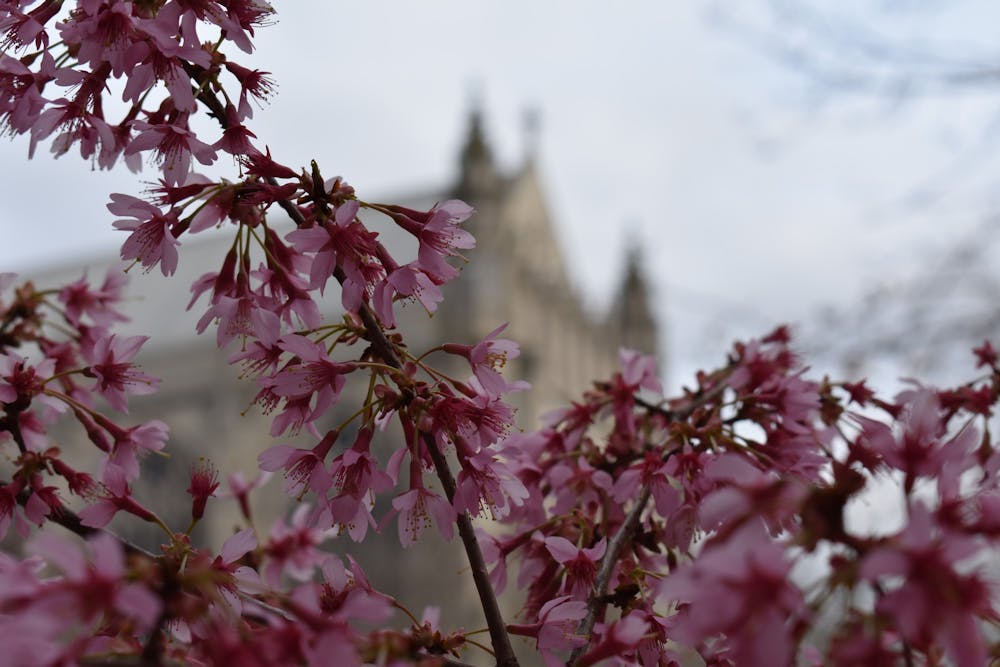In its Spring 2021 reopening plan, the University announced that it will not change its Academic Calendar, which slashed the usual weeklong Spring Break to a mere two days. This is not only an unnecessary modification to the usual University calendar, but it is detrimental to the academic experience, mental health, and well-being of students. This new calendar allows for only two days of break in an otherwise uninterrupted fifteen weeks of coursework, examinations, and paper deadlines.
When asked about the updated calendar and the changes affecting Spring Break in the student town hall held on Dec. 1, Dean of the College Jill Dolan justified the decision, explaining, “We like to give people an entire week to rest and recharge, but we’ve abbreviated the spring break, and we know that puts pressure on people, but we did that to encourage people to stay on campus.”
The fact that the University would take away the only proper break students have during the spring semester as a deterrent for travel is highly misguided and exposes the University’s mistrust of the undergraduate student body.
This policy, along with the justification presented, shows that the University fails to see us as partners in protecting the health and well-being of our community. It simply does not trust its own student body to make responsible decisions, and instead creates barriers that effectively take away students’ sense of agency. It coerces students into measures designed to better ensure their compliance, even when the measures it deems necessary to this end are detrimental to health and well-being of the very students it claims to protect.
Simply put, the University would rather implement a preemptive group punishment in order to deter students from traveling, even if it means jeopardizing the student academic experience and mental health. This upcoming semester already promises to be unusually difficult for students, given the pandemic and campus restrictions. These factors should warrant more breaks during what is collectively seen as the harder of the two semesters, not fewer.
Students have already felt the detrimental effects of an abbreviated break. Last semester, Fall Break was initially shortened to allow for students to finish their lectures and leave campus by Thanksgiving break, as part of the University’s reopening plan. When the administration abruptly scrapped this plan less than three weeks before move-in, the University left the calendar unchanged for no apparent reason other than administrative inertia.
The shortening of the mid-semester break took a toll on the stamina of students and professors alike, even though it was in the context of a semester where students did have a separate Thanksgiving break, an equivalent for which does not exist during the spring semester. The shortened Fall Break compounds the issues of also shortening spring break and makes apparent the inevitable failure and detriment of this misguided change.
Finally, as a policy, the proposed calendar does little to change student behavior. A hypothetical student who intends to travel to visit family nearby or to escape to New York City for the weekend could do so with no mechanism in place to stop them or to keep them accountable, besides the minor inconvenience of an abbreviated visit. The ones who are affected are in fact the vast majority of students who comply with the social contract.

I believe that we deserve a Spring Break. A proper break. One where we can actually breathe, relax for a bit, catch up on coursework, mentally digest all the things we’ve learned, call a friend, go on a walk on the tow path by the canal — and not leave the University and its vicinity, of course. I do not find this to be a radical claim. It is unethical to expect students to work fifteen weeks non-stop, with their only break being the sort of extended weekend the University plans to offer. It is detrimental to our health, our academic experience, and our sense of community.
If you agree, you can take action NOW by adding your name to our petition. Together, we can place pressure on the University to revise its Spring 2021 Calendar and prioritize the health and well-being of its community.
Ahmed Farah is a junior from Gabes, Tunisia. He can be reached at afarah@princeton.edu.









